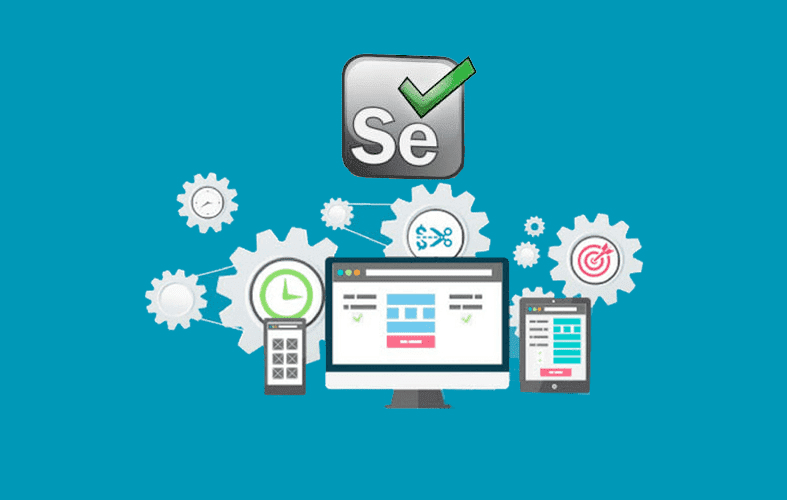Countless hours are required to test any web application to check and make sure it’s functional development. In earlier days of testing, it was all manual, and manual testers were enacting many test case scenarios to complete the testing process. During the manual testing, they used to flag the breakage points and other bugs. The testing process has evolved with the introduction of automated tools like selenium.
This tedious and time-consuming process is used to delay the product launch as per the timeline. Nowadays, the development cycle is shorter, and methodologies are working on getting bug-free products.
Getting that bug-free release requires repeatable testing. That is where Selenium Played an integral role.
Let’s understand what is Selenium. And what is the significance of Selenium in testing?
What is Selenium?
Selenium is an open-source testing tool that automates web browsers. This tool provides a single interface that allows writing test scripts in many programming languages like Ruby, Java, PHP, Python, C#, and Perl.
Selenium is not just a tool. It’s a complete software suite; This tool caters to all the needs of QA testing.
Here are some of the lists-
- Selenium remote control
- Web driver
- Selenium Grid
- Selenium Integrated Development Environment
Selenium RC and web driver are merged in a single framework to form Selenium.
Selenium Web Driver

Selenium web driver, initially Selenium 2.0 is also called Selenium 4 (also called alpha 3). These web drivers can be used to execute the test scripts via browser-specific drivers. Here are some of the drivers:
- API
API stands for the application programming interface and can port the test scripts written in languages like JAVA, RUBY, PYTHON, or C#.
- Library
Many API and language-specific bindings are available; the core client-side bindings are supported by Selenium Java, Selenium Ruby, Selenium Dot net, and C#. The use of the library depends on the language used.
- Framework
Integration of libraries is supported by the natural programming language test framework. These are Selenium with cucumber or testing.
- Driver
Selenium provides the executable modules. These modules open up the browser and help to run the test scripts. Google develops the Chromedriver for Selenium to support the Selenium Automation.
Why does a tester need Selenium Automation Testing?
Selenium is the most used free open-source tool used for automation testing. There are many benefits Selenium provides to the testers. With Selenium, you can enable the test recording and run multiple scripts across different browsers.
The main advantage of Selenium is to hold relevance across diverse business segments
Here are some points:
- Open Source
The biggest advantage of Selenium is that it is an open-source tool. This tool comes with community support and is freely available.
- Language Support
This tool supports many languages, and it has its own script. Developers and testers can work with ease.
- Operating System
Selenium is a good choice for testers as it supports many operating systems like Mac, Windows, Linux, and Unix. Testers can create a tailored testing suite.
With Selenium, testers can create the test cases with Windows and run them on the Linux system without any problem.
- Support many browsers
Selenium gives support across multiple browsers like IE, Chrome, Firefox Safari, Opera, etc.
- Device support
Selenium test automation works across devices and supports web applications too. Selenium works on Android, iPhone, and Blackberry.
- Get updates
Selenium offers a big community to get instant updates and upgrades. All these upgrades are easy to adopt and do not require intense training.
- Easy Implementation
Selenium is known for its user-friendly interface, which helps to create tests easily. Users can use the scripts for their extensions and develop the test scripts without hassle.
- Reusability
Selenium test automation framework offers reusable test scripts. These test scripts can be considered to be used in different browsers. Selenium covers all aspects of functional testing with add-on tools to broaden the scope of testing.
What kinds of testing can be automated with Selenium Test automation
With Selenium, you can automate the following types of testing-
- Compatibility Testing
- Performance Testing
- Integration Testing
- System Testing
- End-to-End Testing
- Regression Testing
When QA can use Selenium test automation
QAs are the most involved people from the very early stage of testing. They run series and acceptance tests on different modules, and iteration mustn’t break the coded modules when they are putting it together.
Each new iteration needs regression testing, and it becomes tedious for the QA to keep track of codes and test cases in manual testing. Hence the role of Selenium test automation comes into the picture to ease the process.
Conclusion
Selenium testing is integral to continuous integration and delivery (CI/CD). Selenium helps to automate the recurrent functional, compatibility, and performance testing.
This helps developers get faster debugging and instant feedback; this gives them more time to code business logic for the next product version. Selenium is the best solution for agile development and CI/CD. It provides reliable bug-catching and free resources from manual testing.
Selenium is scalable over time, and testers get the chance to create an extensive library of repeated test cases for the same product.








